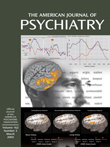The American Psychiatric Publishing Textbook of Forensic Psychiatry
The field of forensic psychiatry owes much to seminal works authored in the mid-nineteenth century. Isaac Ray’s A Treatise on the Medical Jurisprudence of Insanity (1838) illuminated the distinction between the role of the general psychiatric clinician and that of the expert witness in the legal arena. As the discipline of forensic psychiatry has evolved into a subspecialty in modern psychiatric practice, the majority of forensic psychiatric examinations and forensic psychiatric testimony continue to be conducted by the general psychiatrist (devoid of formal forensic psychiatric training or subspecialty certification). A literary chasm exits in forensic psychiatry. Regrettably, there is a paucity of texts and materials to provide general psychiatrists the forensic skills and practice guidelines to advance their skills and therefore execute their forensic duties with greater competency. In contrast, specialty texts directed to the level of expertise of the formally trained forensic psychiatrist are more available (yet still limited).
Drs. Simon and Gold have contributed a text that is much overdue and welcome; it bridges the existing chasm. The American Psychiatric Publishing Textbook of Forensic Psychiatry is a collaborative endeavor of 28 notable experts in the fields of forensic psychiatry and forensic psychology. The text itself is skillfully authored and edited to provide utility for both the general clinician and the more seasoned forensic psychiatrist. The book consists of 23 chapters divided into four parts. Part 1, Introduction to Forensic Psychiatry, is presented in eight chapters; part 2, Civil Litigation, in six chapters; part 3, Issues in Criminal Justice, in four chapters, and part 4, Special Topics, in five chapters. Each chapter is eloquently framed in a final conclusion section, which binds the individual elements of the chapter into the greater theme of the chapter. The authors further highlight the essential concepts of each chapter in bulleted key points and an enumerated short list of practice guidelines. The authors also provide extensive references and lists of suggested readings germane to each chapter to enhance the breadth and depth of understanding. The text serves to raise the level of forensic sophistication of each reader by providing a glossary of legal terms, a legal case index that provides references and discussion of pertinent cases, and a subject index that is alphabetically presented to facilitate topical location and cross-referencing.
This textbook has earned its place in the library of those looking to master the subspecialty of forensic psychiatry.



